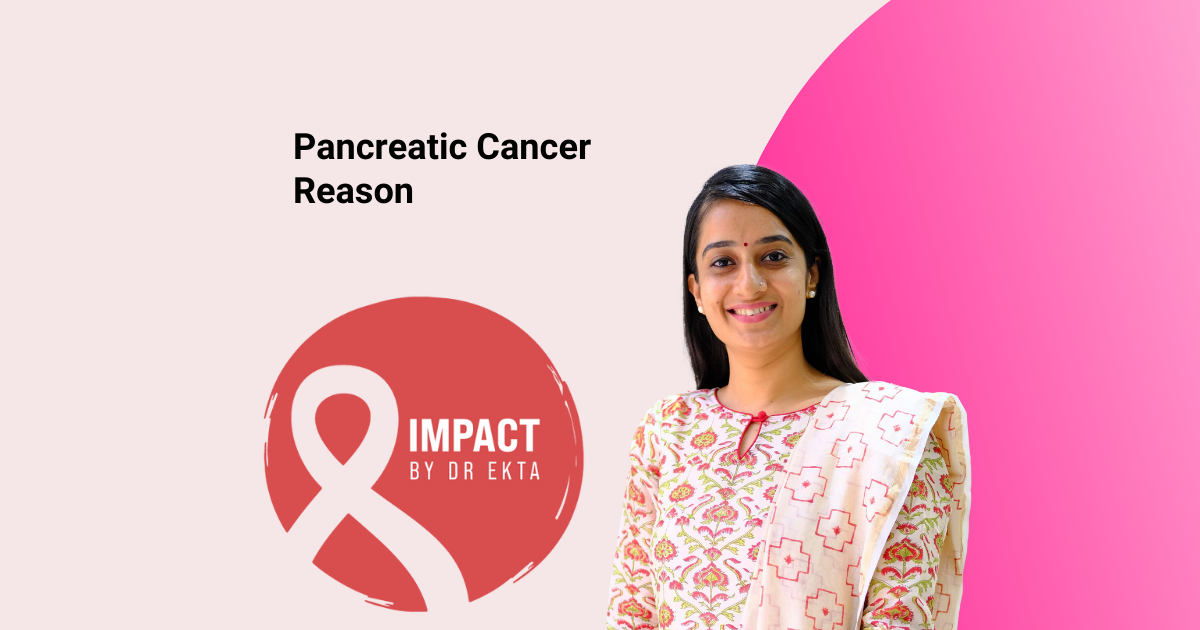As an oncologist, I have dedicated my career to understanding the intricacies of cancer, one of the most perplexing and devastating diseases affecting humanity. Among the many types of cancer, pancreatic cancer stands out due to its aggressive nature and often late diagnosis. In this blog, I aim to delve into the primary pancreatic cancer reasons, shedding light on the factors that contribute to its development and progression.
Understanding Pancreatic Cancer
Pancreatic cancer originates in the tissues of the pancreas, an organ situated behind the lower part of the stomach. The pancreas plays a crucial role in digestion and blood sugar regulation. Unfortunately, pancreatic cancer is often diagnosed at an advanced stage, making it one of the deadliest forms of cancer. Understanding the reasons behind its development is essential for early detection and prevention.
Pancreatic Cancer Reason: Genetic Factors
One significant pancreatic cancer reason is genetic predisposition. Individuals with a family history of pancreatic cancer are at a higher risk of developing the disease. Mutations in specific genes, such as BRCA1, BRCA2, and PALB2, have been linked to an increased risk of pancreatic cancer. Hereditary conditions like Lynch syndrome and hereditary pancreatitis also contribute to the likelihood of developing this cancer. Genetic testing can help identify individuals at risk and enable early intervention.
Pancreatic Cancer Reason: Lifestyle Factors
Lifestyle choices play a pivotal role in the development of pancreatic cancer. Smoking, for instance, is a well-established pancreatic cancer reason. Smokers are two to three times more likely to develop pancreatic cancer compared to non-smokers. The harmful chemicals in tobacco smoke can cause mutations in pancreatic cells, leading to cancerous growths.
Another lifestyle-related pancreatic cancer reason is obesity. Excess body weight, particularly abdominal fat, increases the risk of pancreatic cancer. Obesity can lead to chronic inflammation, insulin resistance, and changes in hormone levels, all of which contribute to the development of cancer.
Pancreatic Cancer Reason: Diet and Nutrition
Dietary habits also significantly influence the risk of pancreatic cancer. Diets high in red and processed meats, as well as high-fat and sugary foods, are considered pancreatic cancer reasons. These foods can increase inflammation and insulin levels, both of which are linked to cancer development.
Conversely, diets rich in fruits, vegetables, and whole grains are associated with a lower risk of pancreatic cancer. Antioxidants and phytochemicals found in plant-based foods help protect cells from damage and reduce inflammation, thereby lowering cancer risk.
Pancreatic Cancer Reason: Diabetes
Diabetes, particularly type 2 diabetes, is another important pancreatic cancer reason. Long-standing diabetes can lead to changes in the pancreatic cells, increasing the likelihood of cancer. Additionally, individuals with diabetes often have higher insulin levels, which can promote the growth of pancreatic cancer cells. Managing diabetes through lifestyle changes and medication is crucial in reducing the risk of pancreatic cancer.
Pancreatic Cancer Reason: Chronic Pancreatitis
Chronic pancreatitis, a condition characterized by long-term inflammation of the pancreas, is a known pancreatic cancer reason. The ongoing inflammation can cause damage to pancreatic cells, making them more susceptible to cancerous changes. Chronic pancreatitis can result from heavy alcohol use, certain medications, or genetic conditions. Early diagnosis and treatment of pancreatitis are essential to prevent progression to cancer.
Pancreatic Cancer Reason: Occupational Exposure
Occupational exposure to certain chemicals and substances is a lesser-known but significant pancreatic cancer reason. Individuals working in industries such as metalworking, dry cleaning, and chemical manufacturing may be exposed to carcinogenic substances that increase the risk of pancreatic cancer. Implementing safety measures and reducing exposure to harmful chemicals can help mitigate this risk.
Pancreatic Cancer Reason: Age and Gender
Age and gender are also factors that contribute to the development of pancreatic cancer. The risk of pancreatic cancer increases with age, with most cases occurring in individuals over the age of 65. Additionally, men are slightly more likely to develop pancreatic cancer than women. While these factors are beyond our control, understanding their impact can help in early detection efforts.
Pancreatic Cancer Reason: Race and Ethnicity
Race and ethnicity also play a role in pancreatic cancer risk. African Americans have a higher incidence of pancreatic cancer compared to other racial and ethnic groups. This increased risk may be due to a combination of genetic, environmental, and socioeconomic factors. Awareness and targeted screening programs can help address this disparity and improve outcomes.
Prevention and Early Detection
While we cannot change our genetic makeup or age, there are steps we can take to reduce our risk of pancreatic cancer. Adopting a healthy lifestyle is paramount. Quitting smoking, maintaining a healthy weight, and following a balanced diet rich in fruits, vegetables, and whole grains can significantly lower the risk.
Regular check-ups and screenings are essential, especially for individuals with a family history of pancreatic cancer or other risk factors. Early detection can improve the chances of successful treatment and increase survival rates.
Conclusion
Pancreatic cancer is a formidable disease with a complex set of causes. As an oncologist, I have seen firsthand the devastating impact it can have on patients and their families. Understanding the various pancreatic cancer reasons, from genetic predisposition and lifestyle choices to dietary habits and occupational exposure, is crucial in combating this deadly disease.
By raising awareness and promoting early detection, we can improve outcomes for those at risk of pancreatic cancer. Together, we can take steps to reduce the incidence of this disease and provide hope for a brighter, healthier future.

